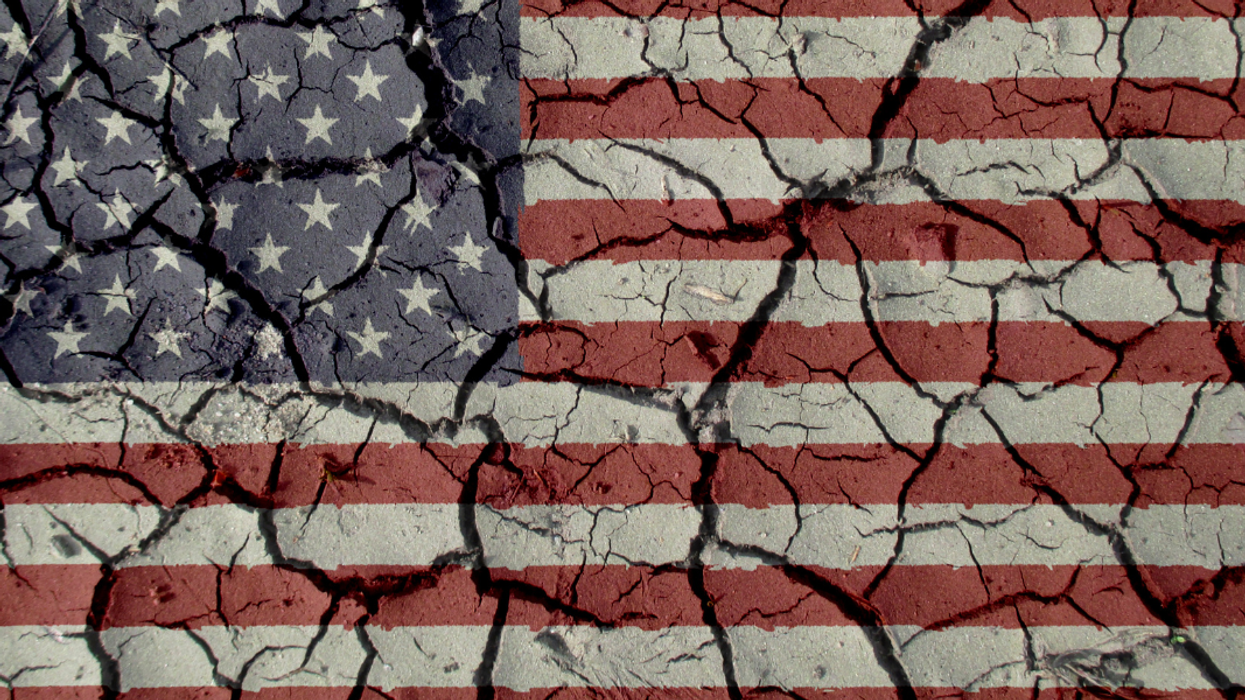Anderson edited "Leveraging: A Political, Economic and Societal Framework" (Springer, 2014), has taught at five universities and ran for the Democratic nomination for a Maryland congressional seat in 2016.
What if the United States is not being ripped apart? Before there can be growth, whether you are thinking about the life of an individual, a sports team, a muscle or an entire nation, there has to be tension, conflict, and pain. Otherwise, things are calm, stable, moving along smoothly.
The conventional wisdom is that our country is polarized, progressives at war with conservatives, enraged advocates on opposite sides of the fence on matters ranging from guns and abortion to immigration, to teaching gender identity in middle school, and religious freedom and the rights of the LGBTQ community to purchase products and services from companies of their choice. Moreover, Washington, D.C. is regarded as the microcosm of the enraged citizens fighting in the North, the South, the Midwest, and the West. The political system itself is regarded as broken due to gerrymandering, distrust of politicians, distrust of the judicial system, and the corrupt role money plays in politics.
Although Washington, D.C. is the epitome of polarization, the country actually is not polarized. Gallup reports in almost every month in the past year that between 40 % and 44% of American voters identify as independents. Sure, 60% of the country is polarized, and half of that 60% is very polarized. But 60% of the country is not the country.
On some of the major policy areas that the polarization narrative features, abortion and guns, majorities of over 60% of the voters are on the same side: There is no close tug of war among the people on the question of whether Roe v. Wade should have been overturned (solid majority says no) or whether the country needs stronger regulation of guns (solid majority says yes), including background checks for anyone who wants to purchase a gun. How could the country be polarized if 40 to 44 American voters out of 100 do not regard themselves as members of the political parties which MSNBC and Fox News tell us represent the American people and are at war with each other?
Now imagine a possible though admittedly not probable future: What if Mr. Trump, wrestling with four indictments, does not make it to the Republican nomination? What if Republican voters pick former South Carolina Governor Nikki Haley? Or what if they pick someone out of the purple like swing state Virginia Governor Glenn Youngkin as their nominee?
And what if there is a surge of independents who back the centrist ticket for president and vice president that No Labels has threatened to run (though not fund) if the "environment" is right? Democratic West Virginia Senator Joseph Manchin and former Republican Utah Governor Jon Huntsman have been floated as possible candidates. And what if a bold centrist ticket as opposed to a moderate centrist No Labels ticket emerges that draws the support of many independents?
If Trump is sidelined for, say, Haley, and Manchin and Huntsman have the No Labels backing, a bold centrist ticket emerges, and President Biden and Vice President Harris stay in the race and possibly they become bold centrists, then the leading candidates in the race for president would all be speaking from a broadly sensible point of view. The general election would be absent of hatred, viciousness, craziness, and unconstitutional proposals.
Since the rise of information technology, especially the internet and social media, things change faster than ever before. We therefore should not be too surprised if the country takes a turn in a direction away from the pathetic place where it is today.
The odds do not favor this development, but it cannot be assumed that it will not come about.
With about 100 million American adults who do not think of themselves as Democrats and Republicans, and with a recognizable number of dissenters in both parties in Washington, we must admit that the future is open. Trump is not destined to serve a second term in the White House, and he may end up serving time in a federal prison.
The anxiety, the anguish, the fighting, the meanness that we see daily in the news may be the body politic articulating what the extremists and purists believe and feel but not what 40% -- even 50% -- of American adults believe and feel. At the heart of the American experience there is decency, there is respect for the law, there is love of family, and there is hope for the future. We may yet see the independents, the moderates, and the centrists take control of our destiny.




















Trump & Hegseth gave Mark Kelly a huge 2028 gift